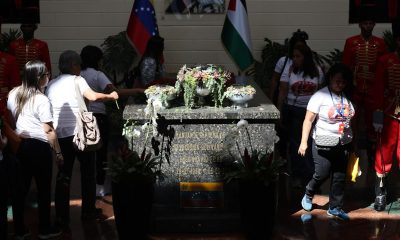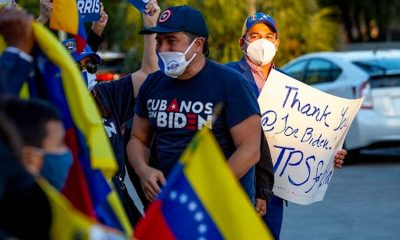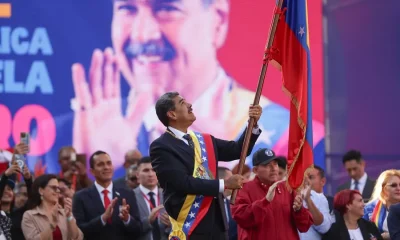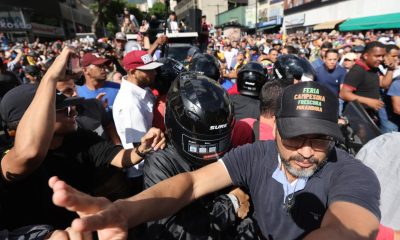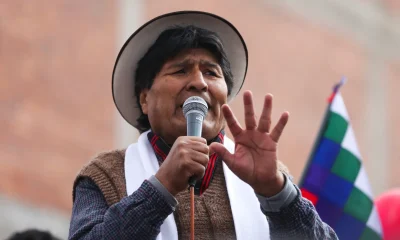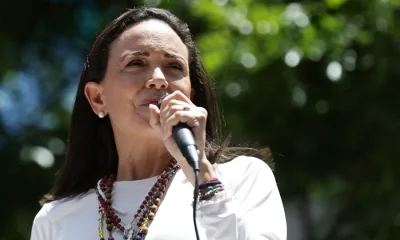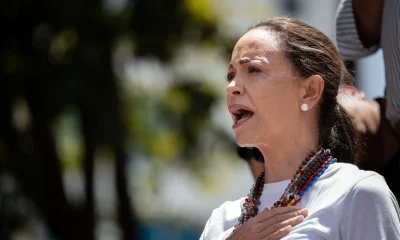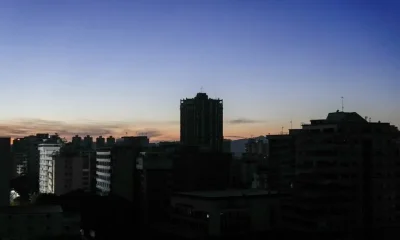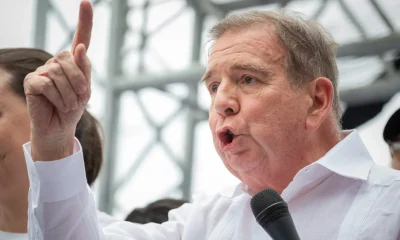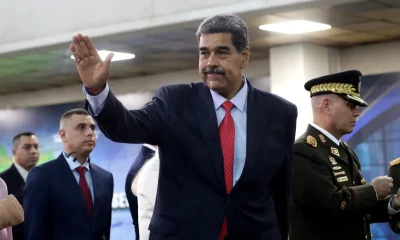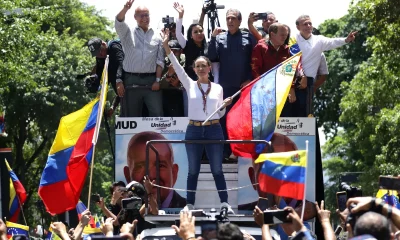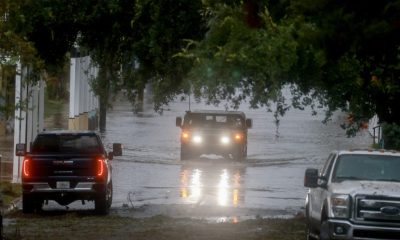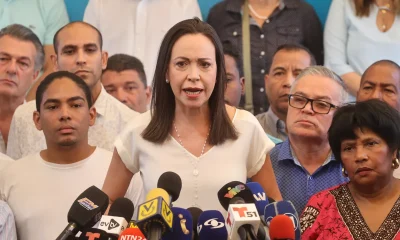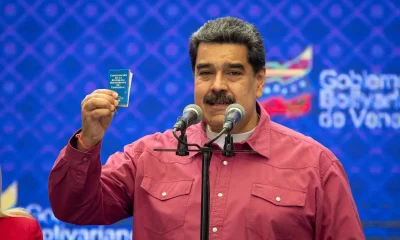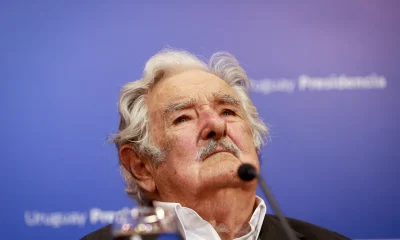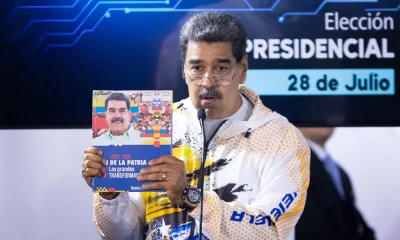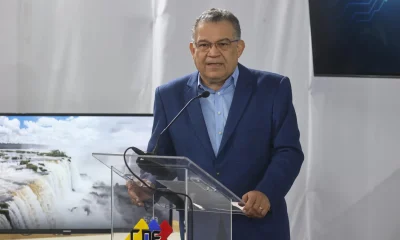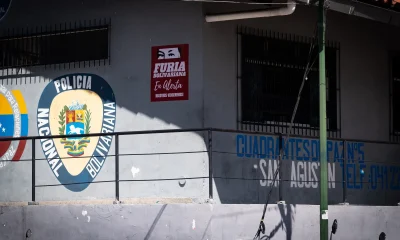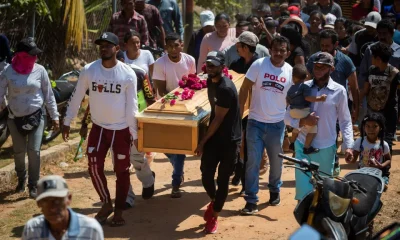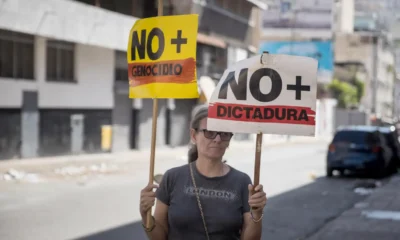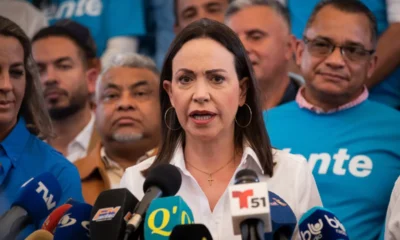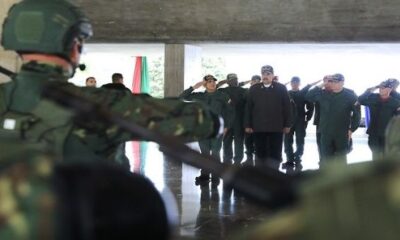International
Venezuela submits report to UN Human Rights Committee
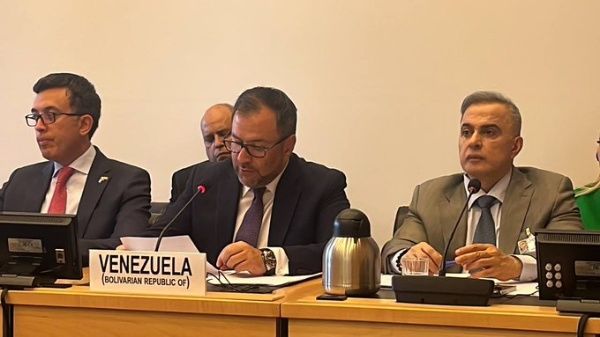
October 11 |
Venezuela presented its fifth periodic report at the 139th session of the United Nations Human Rights Committee, in which it highlighted progress, achievements and challenges in this area for the country.
The Minister of Foreign Affairs, Yván Gil, added that since 2021, the National Assembly has sanctioned more than 67 laws “key for the promotion and direction of civil and political rights of the Venezuelan population”.
The Bolivarian Government projects a sustainable economic development “with an increase in the levels of national productivity of the public and private sector” for the remainder of 2023 and by 2024.
Gil presented the country’s Fifth Periodic Report on the protection and guarantee of rights enshrined in international legislation and the Bolivarian Constitution, before the 139th session of the UN Human Rights Committee.
The head of the Venezuelan diplomacy distinguished that the figure of national dialogue “has been a sustained policy of the Executive, promoting the solution of differences within the framework of the rule of law, through more than 500 public calls for dialogue among Venezuelans”, he considered.
He indicated that measures have been taken in Venezuela to increase awareness of the Pact and its applicability in national law, such as the establishment of the first National Human Rights Plan 2016 – 2019, whose projects, actions and resources necessary for its implementation were incorporated in the institutional operational plans of the organs of the State Powers.
As part of political rights, the Minister pointed out that during the period 2012 – 2020, 10 national electoral processes were held, including three presidential elections.
In closing his participation, Minister Gil stressed that in Venezuela they attach vital importance that the issue of human rights “be treated objectively and impartially, without selectivity, double standards or politicization, in a spirit of genuine dialogue and cooperation, in accordance with the principles enshrined in the Charter of the United Nations”.
On the other hand, the Foreign Minister denounced before the committee that his country is the victim of a multiform aggression driven by the US, with the imposition of coercive measures.
“We have been the object of a multiform aggression promoted by the Government of the United States of America that has negatively affected the enjoyment of human rights of the Venezuelan population,” said Gil during the presentation.
Gil reiterated that the U.S. Office of Foreign Assets Control (OFAC) and other agencies of different countries adopted more than 930 restrictive or punitive unilateral coercive measures related to Venezuela, which caused the reduction of the State’s capacities to obtain financial resources, as well as goods and services necessary to satisfy the main needs of the citizens of that Caribbean nation.
“This onslaught against Venezuela has included the adoption of a set of unilateral coercive measures whose impact has been documented and condemned by the Human Rights Council, the United Nations High Commissioner for Human Rights and various special procedures of the Human Rights Council,” he commented.
The Venezuelan delegation present in Geneva, together with the Minister of Foreign Affairs, includes Attorney General Tarek William Saab; the second vice-president of the Supreme Court of Justice and president of the Civil Cassation Chamber, Magistrate Henry Timaure.
Also the Deputy Minister of Foreign Affairs for Multilateral Affairs, Rubén Darío Molina; the Deputy Minister of Domestic Policy and Legal Security of the Ministry of People’s Power for Domestic Affairs, Justice and Peace, Alana Zuloaga and the Permanent Representative to the UN in Geneva, Ambassador Hector Constant, among other officials.
International
Maduro signs Economic Emergency Decree to counter U.S. sanctions on Venezuela
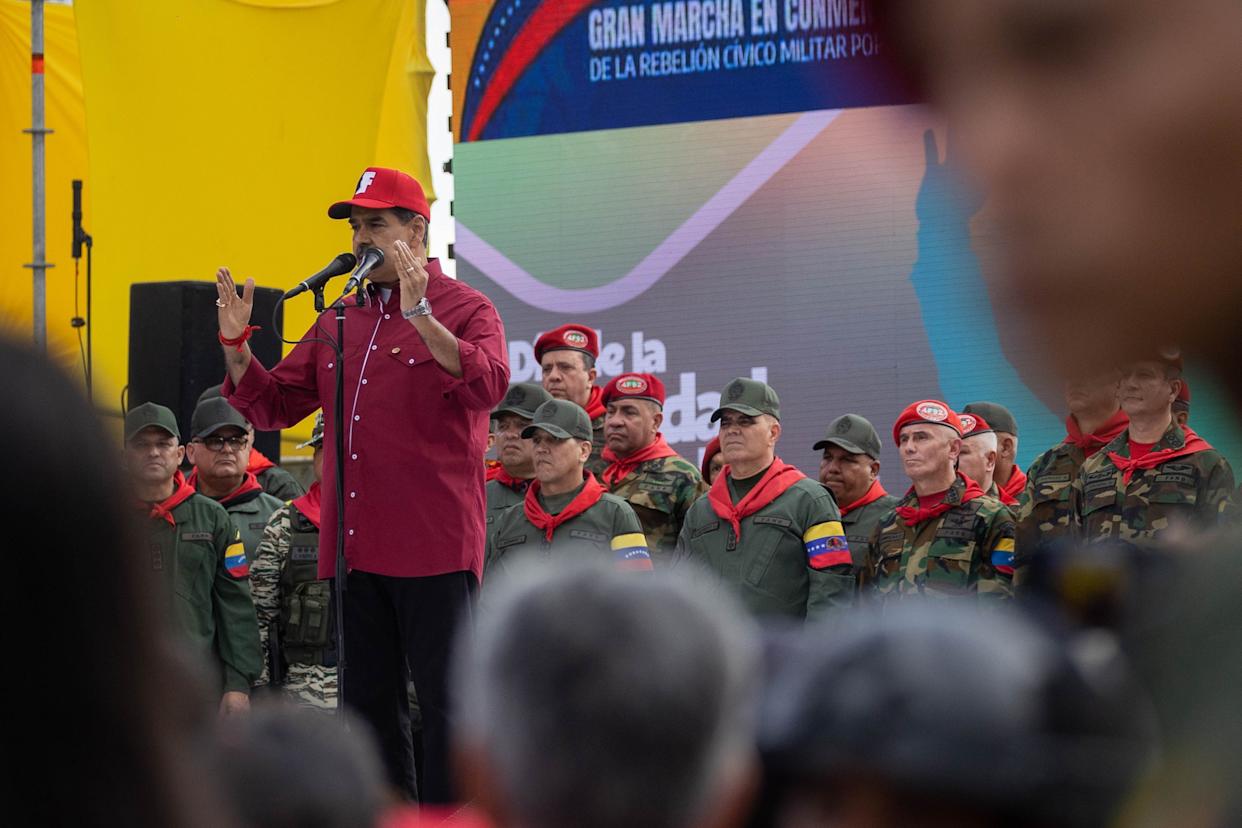
The National Assembly of Venezuela approved on Thursday an economic emergency decree presented this week by the government of President Nicolás Maduro, in response to sanctions and tariffs imposed by the United States.
In March, the government of Donald Trump began suspending licenses for foreign oil companies operating with the state-owned Venezuelan oil company PDVSA and imposed secondary tariffs on crude oil and gas exports. Maduro signed the decree on Tuesday, invoking constitutional articles that allow him to declare states of exception, temporarily restrict constitutional guarantees, or declare a state of emergency in the event of disasters, public calamities, or events that seriously threaten the country’s security.
The emergency decree “is to support national production,” said Delcy Rodríguez, Vice President and Minister of Hydrocarbons, during the document’s presentation.
“The affected oil markets, the fall in oil prices, have already surpassed 30% in our measurement, and this, as we say, is just the beginning,” Rodríguez stated, clarifying that Venezuela’s oil and gas production continues.
Rodríguez also mentioned that foreign oil companies are welcome to operate in Venezuela in accordance with local laws.
The United States has set a deadline of May 27 for oil companies operating in Venezuela, including Chevron (U.S.), Eni (Italy), and Repsol (Spain), to wind down their operations and exports.
The decree grants Maduro the authority to implement measures he deems necessary to ensure economic growth, contain inflation, offer special treatment to investors, suspend taxes, or apply exceptions to tax laws, and establish import substitution mechanisms, among other measures.
Maduro and his government have consistently rejected sanctions imposed by the United States and other countries, arguing that they are illegitimate measures constituting an “economic war” designed to cripple Venezuela.
The president and his allies have celebrated what they describe as the country’s resilience despite these measures, although they have historically attributed some economic difficulties and shortages to the sanctions.
This is not the first time Maduro has governed under an emergency decree. In 2016, he signed a similar decree, which was extended until 2021 under the argument of sanctions imposed on Venezuela by Washington.
With the Assembly’s approval, the decree must now be sent to the Constitutional Chamber of the Supreme Court of Justice.
Central America
U.S. Government says deported migrants should remain in El Salvador for life
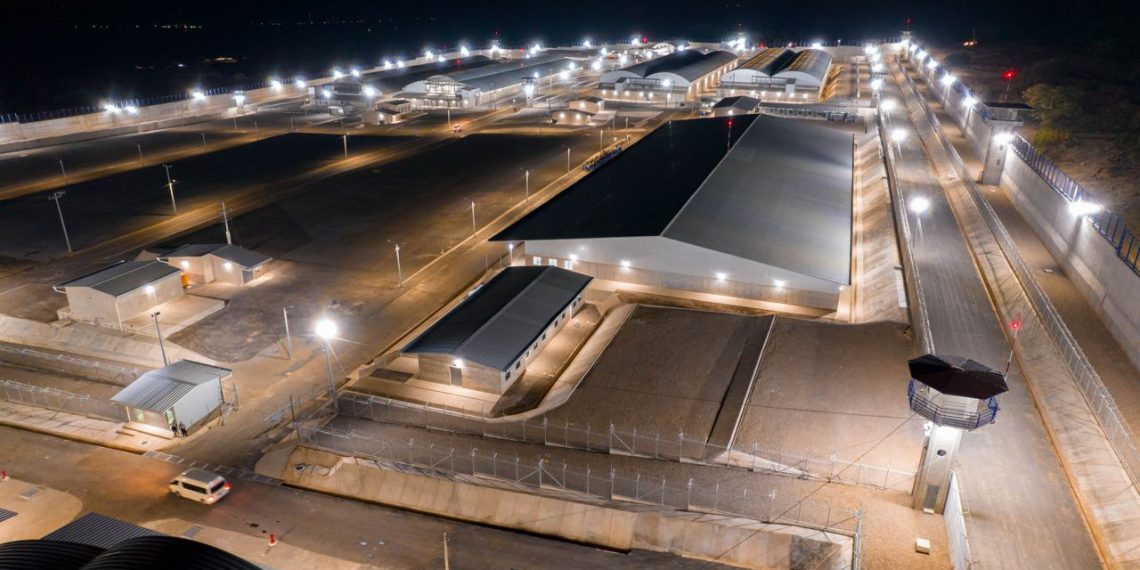
The United States government believes that the 238 migrants recently deported to El Salvador should remain in the country “for the rest of their lives.”
This was stated by Kristi Noem, the Secretary of Homeland Security, during a press conference. The following day, in a televised cabinet meeting, she reiterated the government’s commitment to continue its campaign to deport over 11 million people living in the U.S. without legal immigration status.
“We are confident that the people (sent to El Salvador) should be there, and they should stay there for the rest of their lives,” Noem told a group of reporters on Wednesday.
Despite the Trump administration’s defense of its decision to transfer the migrants to the Terrorism Confinement Center (Cecot), both testimonies from their families and reports from U.S. media outlets have shown that most of those currently detained there have no criminal backgrounds.
International
Italian biologist found dead in Colombia; investigation underway
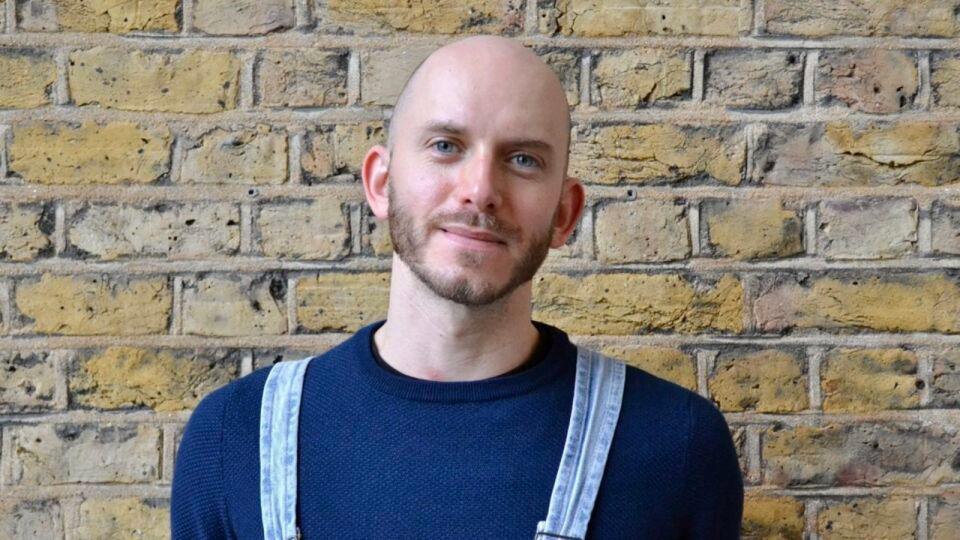
An Italian scientist has been found dead in Colombia, local authorities confirmed, after body parts were discovered along a trail in the coastal city of Santa Marta on Sunday.
Municipal police said that a bracelet found among the remains belonged to Alessandro Coatti, a biologist who had recently embarked on a journey across South America. Additional human remains were later discovered in two other locations within the city.
According to the police, Coatti had been staying in a local accommodation and was reportedly visiting the scenic Tayrona coastal area on April 5. His whereabouts since that date remain unknown, prompting an urgent investigation.
“There are currently no further details available; the case remains under investigation,” Colombia’s Attorney General’s Office said on Thursday. “It is still unclear what happened or where.”
-

 Internacionales4 days ago
Internacionales4 days agoErik Prince Backs Ecuador’s Daniel Noboa in Fight Against Crime and “Narcoterrorism”
-

 Central America4 days ago
Central America4 days agoGuatemala’s Legal Chief Shot Dead in Parking Lot: Investigation Underway
-

 Central America3 days ago
Central America3 days agoHonduras Hosts CELAC Summit Amid Regional Concern Over U.S. Deportations
-

 International2 days ago
International2 days agoRussia and US to Meet in Istanbul for Diplomatic Talks on April 10
-

 Central America2 days ago
Central America2 days agoAudit Exposes Major Breaches in Panama Canal Port Concession, $300 Million Owed to State
-

 International3 days ago
International3 days agoTeachers in Southern Mexico Bring Education to Stranded Migrant Children
-

 Central America3 days ago
Central America3 days agoMulino and Orsi Highlight Shared Vision After Panama Joins Mercosur as Associate State
-

 Central America3 days ago
Central America3 days agoTrump Administration Asks Supreme Court to Block Return of Deported Salvadoran
-

 International23 hours ago
International23 hours agoMerengue concert turns to mourning as Jet Set collapse claims 136 lives
-
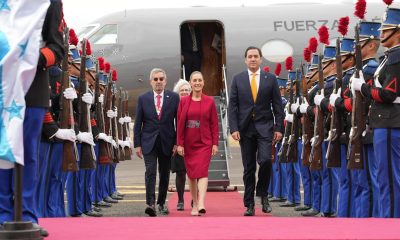
 Central America23 hours ago
Central America23 hours agoMexico’s president proposes regional economic summit at CELAC
-

 Sports2 days ago
Sports2 days agoNeymar Returns to Santos Training After Month-Long Injury Layoff
-
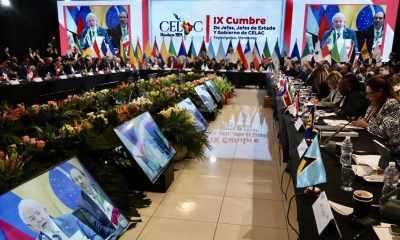
 Central America23 hours ago
Central America23 hours agoColombia to host fourth EU-CELAC Summit in November
-
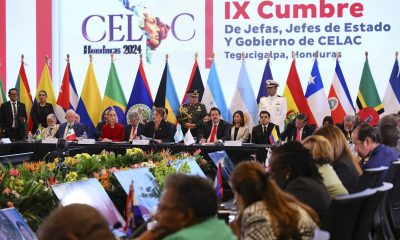
 Central America23 hours ago
Central America23 hours agoCELAC condemns unilateral sanctions in ‘Tegucigalpa Declaration’
-

 International2 days ago
International2 days agoMaduro Announces Economic Emergency Decree Amid Growing Tensions with the U.S.
-

 International2 days ago
International2 days agoScience Brings Back the Extinct Direwolf with Successful De-Extinction Project
-

 International2 days ago
International2 days agoTransgender Student Arrested at Florida Capitol for Using Women’s Restroom Under New State Law
-

 International2 hours ago
International2 hours agoItalian biologist found dead in Colombia; investigation underway
-

 Central America2 hours ago
Central America2 hours agoU.S. Government says deported migrants should remain in El Salvador for life
-

 International2 hours ago
International2 hours agoMaduro signs Economic Emergency Decree to counter U.S. sanctions on Venezuela
-

 Central America2 hours ago
Central America2 hours agoNicaragua seeks ICJ intervention in Gaza conflict amid escalating violations














